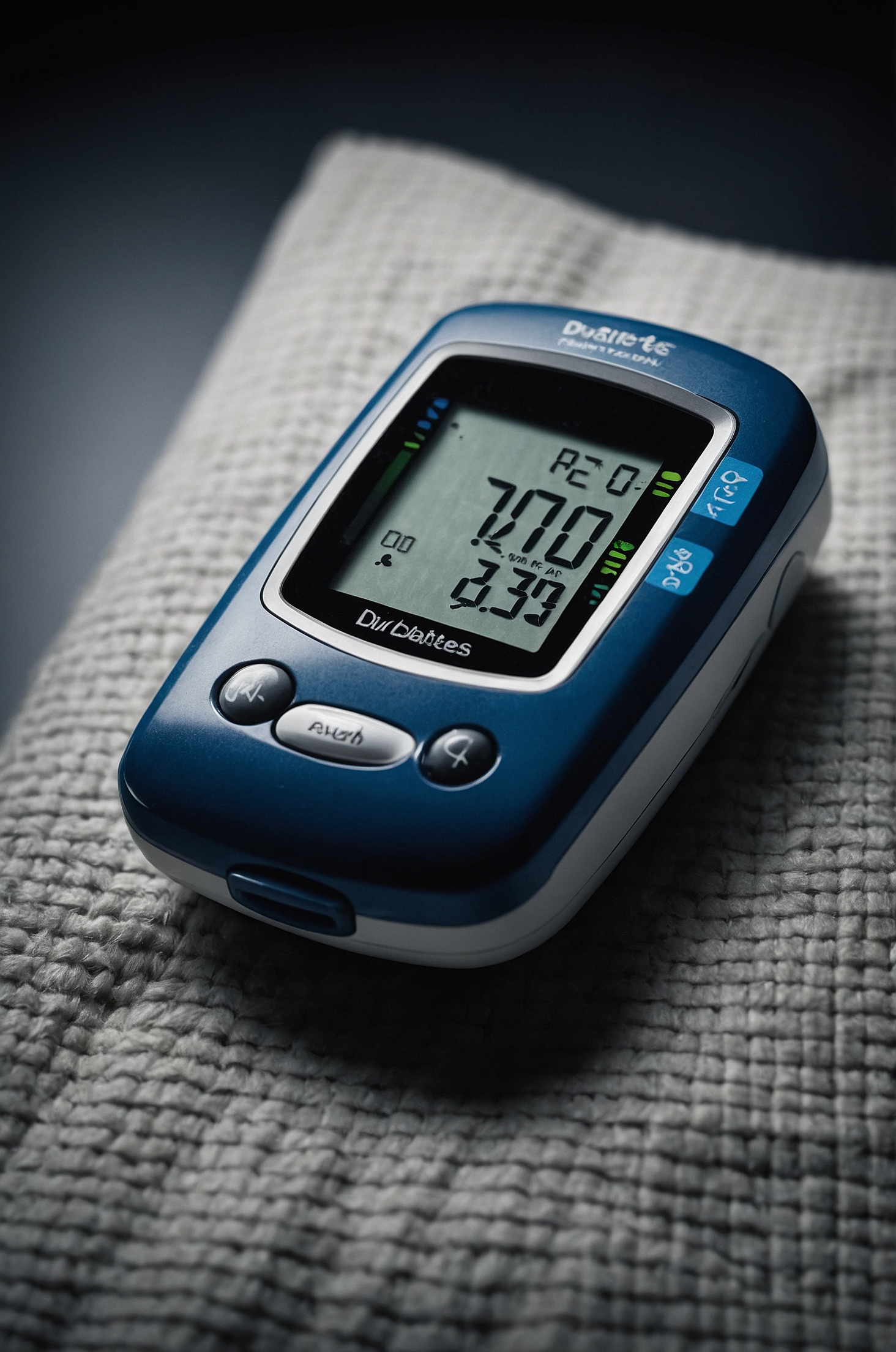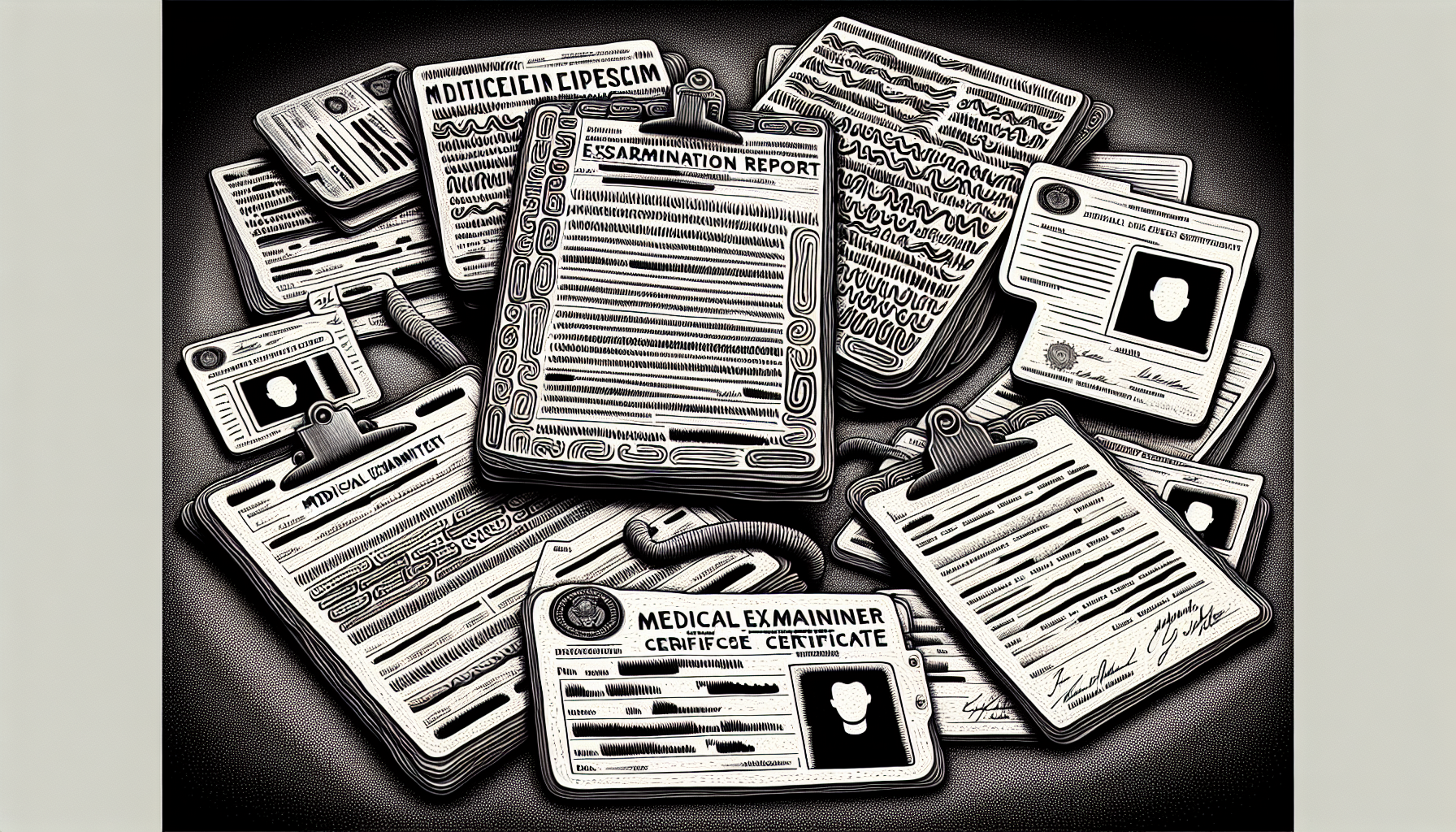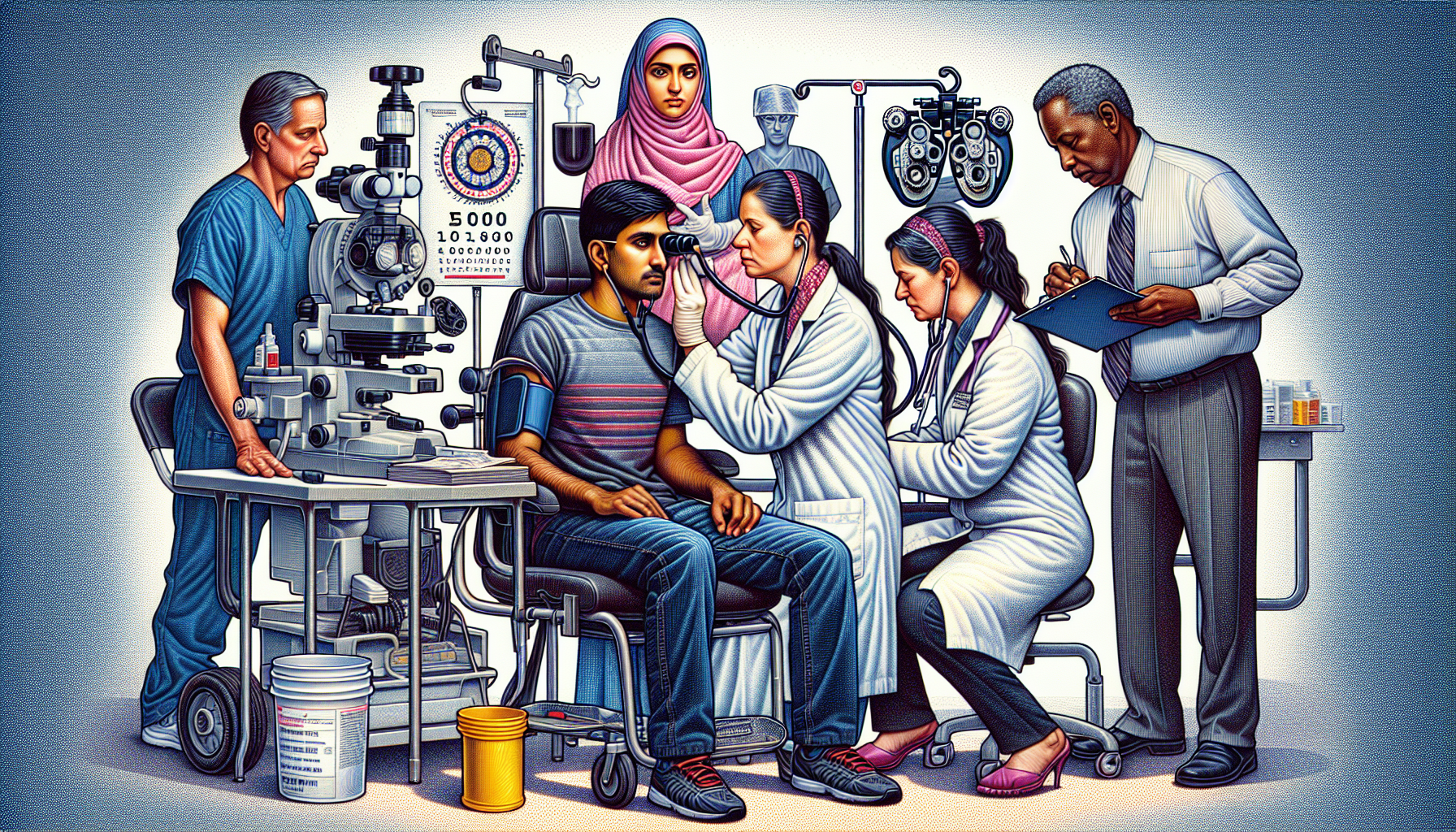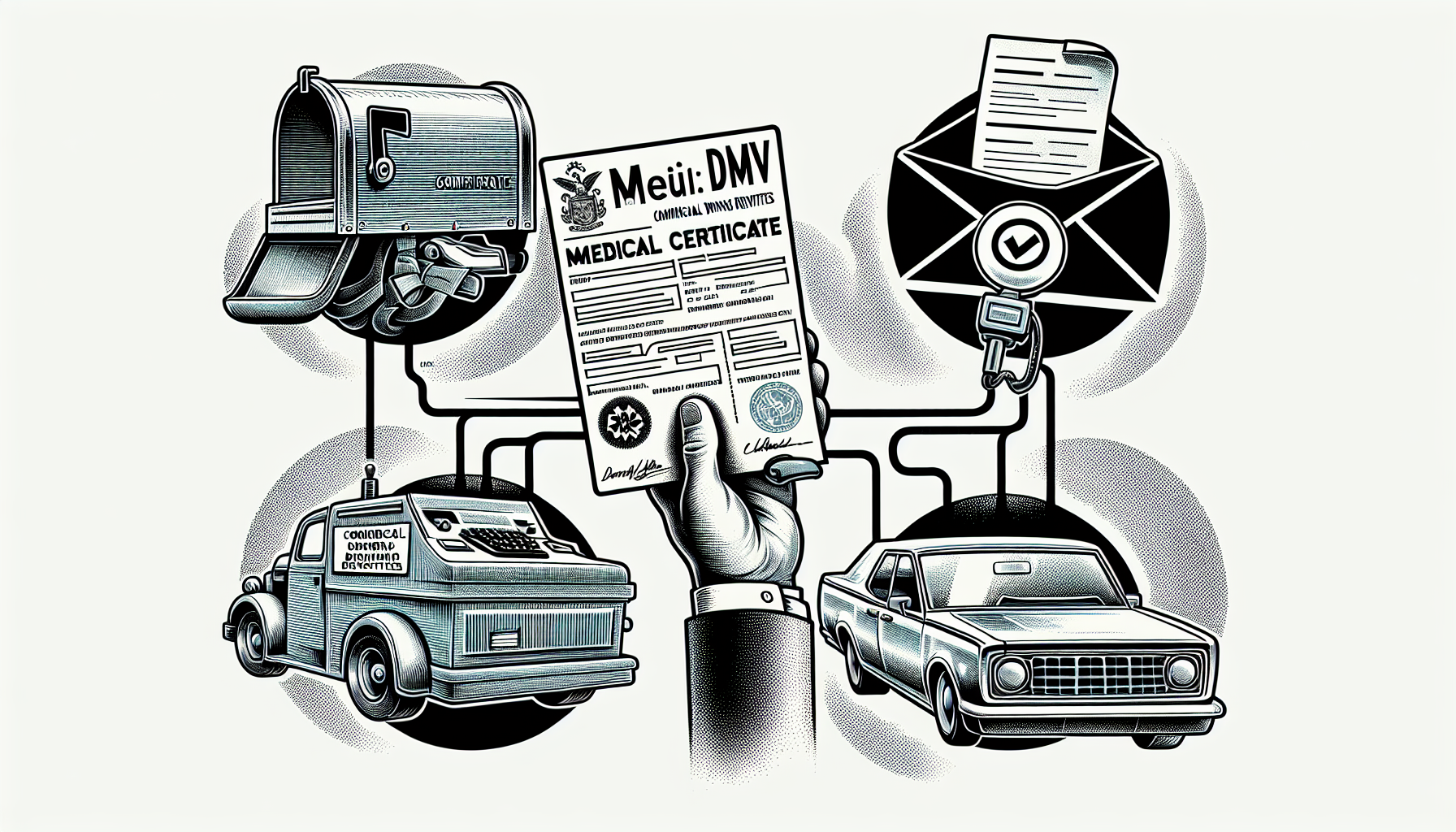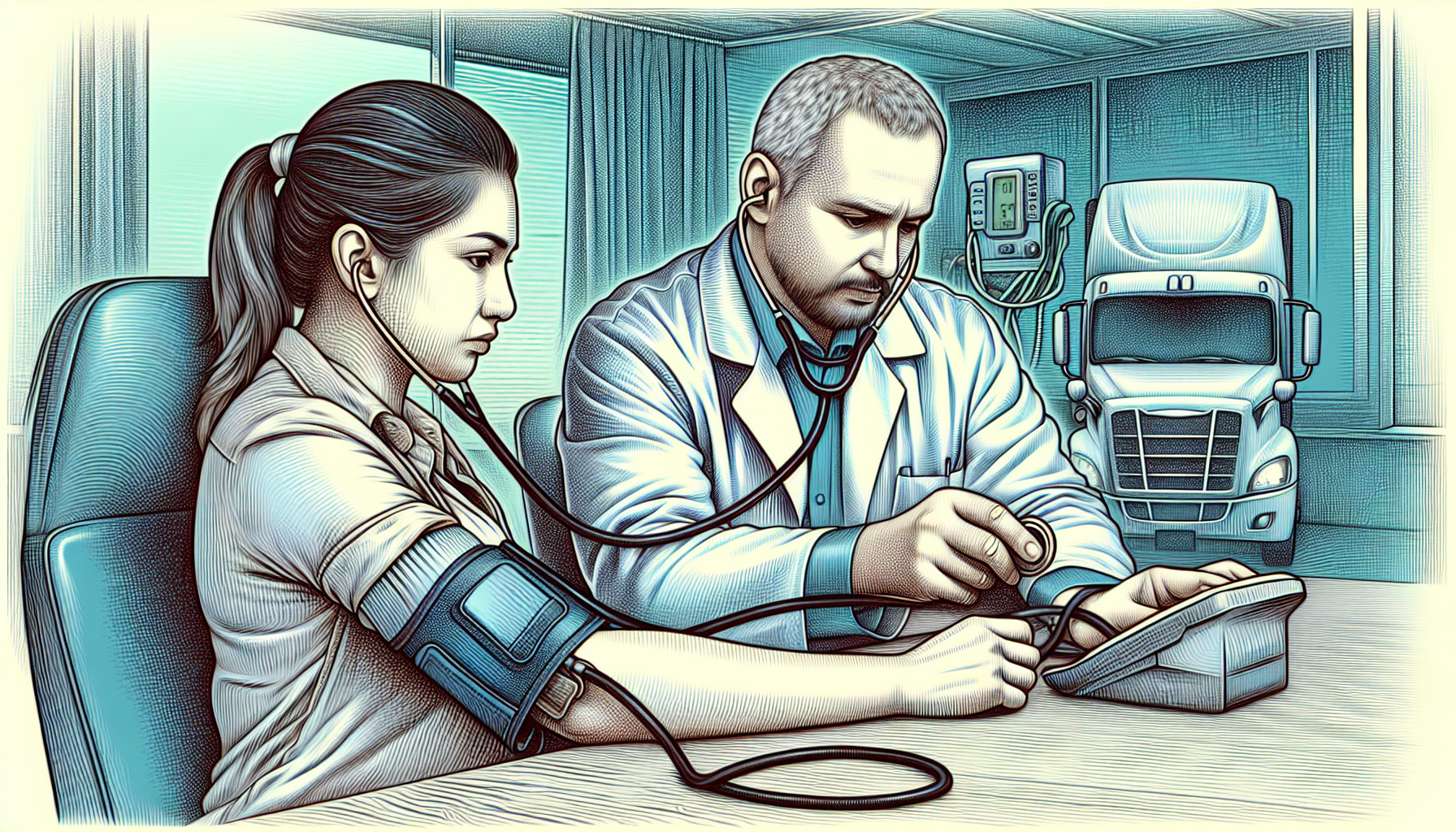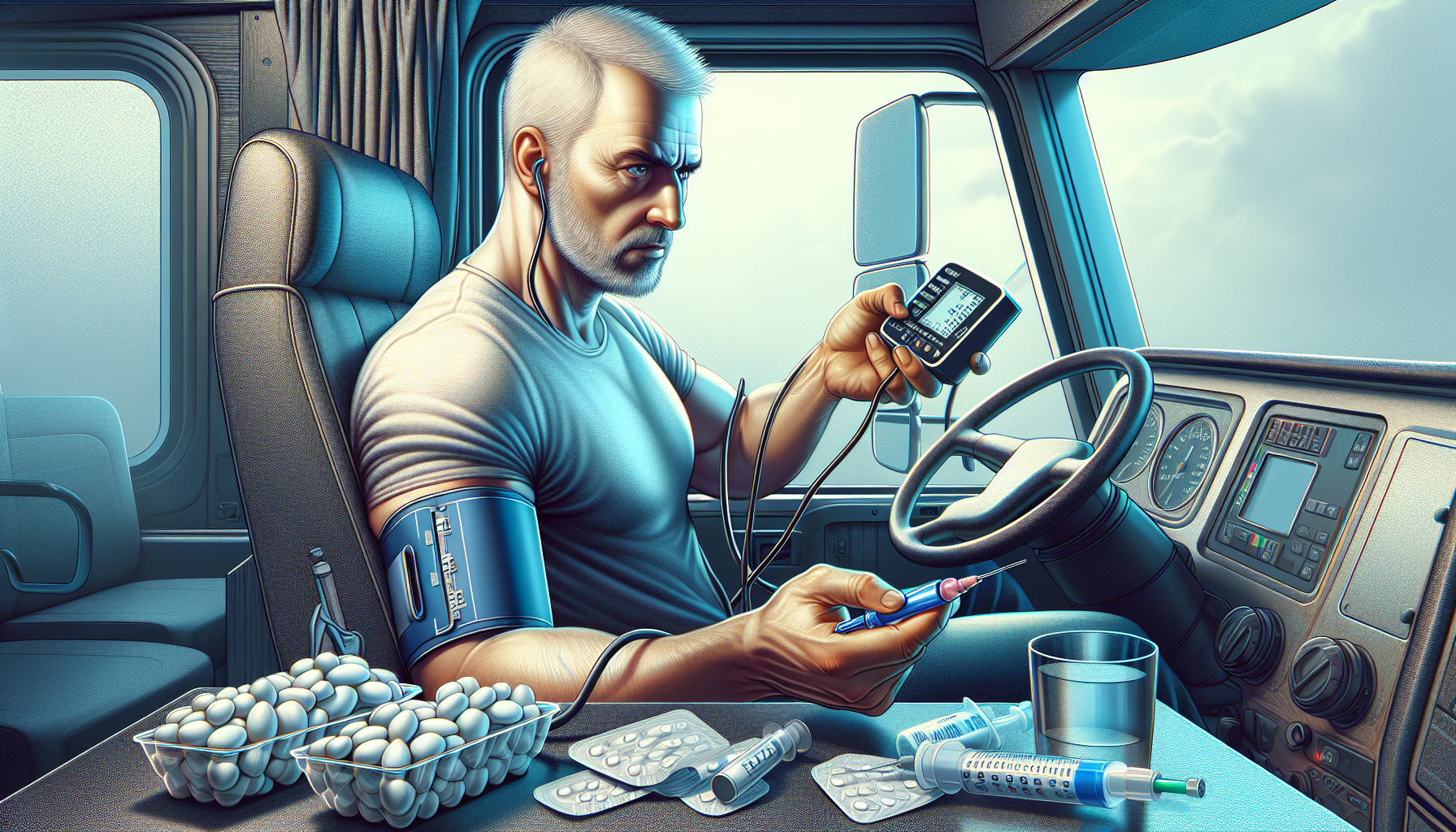Commercial drivers face a host of challenges on the road, but one of the most critical hurdles to maintaining their livelihood is meeting the CDL physical exam requirements, including the crucial DOT medical exam for drivers of large commercial vehicles. This DOT physical ensures that drivers are physically fit to operate commercial motor vehicles safely. Failing to meet these standards can result in the loss of a commercial driver’s license and the end of a commercial driving career. Whether you’re preparing for your first DOT physical or need to renew your medical certificate, understanding the DOT physical requirements is key to ensuring you’re medically qualified to stay on the road.
What Is a DOT Physical?
The DOT physical is a medical exam required by the Federal Motor Carrier Safety Administration (FMCSA) for anyone seeking to operate a commercial motor vehicle (CMV) in the United States. The exam is designed to ensure that commercial drivers are physically capable of performing the duties required of them, such as safely operating large trucks and transporting hazardous materials.
To meet the DOT physical requirements, you must visit a certified medical examiner who will evaluate several aspects of your health, including vision, hearing, blood pressure, and overall physical fitness. This exam is crucial because it helps identify any medical conditions that could impair your ability to drive safely. Upon passing the DOT physical, drivers receive a medical examiner’s certificate, which is essential for maintaining their commercial driving status.
Who Needs a DOT Physical?
A DOT physical is mandatory for individuals who operate commercial motor vehicles (CMVs) in interstate commerce. This includes a variety of drivers, such as:
- CDL Holders: If you hold a Commercial Driver’s License (CDL), you are required to undergo a DOT physical to ensure you meet the necessary health standards.
- Commercial Drivers Who Transport Hazardous Materials: Transporting hazardous materials comes with significant risks, making it crucial for drivers to be in optimal health.
- Commercial Drivers Who Transport Passengers: Whether you’re driving a bus or a shuttle, ensuring the safety of your passengers is paramount, and a DOT physical helps verify your fitness for this responsibility.
- Drivers of Vehicles with a Gross Vehicle Weight Rating (GVWR) of 10,001 Pounds or More: Operating large vehicles requires physical and mental acuity, which the DOT physical aims to assess.
- Drivers of Vehicles Designed to Transport 16 or More Passengers (Including the Driver): Safety is critical when transporting large groups of people, and the DOT physical ensures drivers are up to the task.
These individuals must undergo a DOT physical examination to ensure they are physically and mentally fit to operate a CMV safely.
What Does a DOT Physical Consist Of?
A DOT physical exam is comprehensive and includes several key components to assess the health of commercial drivers. Here’s what you can expect:
- Vision Test: Drivers must have at least 20/40 vision in each eye, with or without corrective lenses. You’ll also need to meet the minimum peripheral vision standards.
- Hearing Test: A forced whisper test will determine if you can hear a whisper from at least five feet away. If you use hearing aids, make sure to bring them to the exam.
- Blood Pressure Check: High blood pressure can be a concern for commercial drivers. The examiner will check your driver’s blood pressure, and you may need to demonstrate that it’s under control with medication.
- Urine Test: A standard part of the DOT physical is a urine test, which checks for underlying health issues, such as diabetes. It’s not a drug test, though you should disclose any prescription medication you’re taking.
- Sleep Apnea Testing: If you have symptoms of sleep apnea, your medical examiner might recommend a sleep apnea test. This condition can significantly affect your ability to stay alert on the road, making it critical for safely operating a commercial vehicle.
- Physical Examination: This portion of the exam will evaluate your general physical health to ensure you’re fit for duty. The medical examiner will assess your heart, lungs, muscles, and overall condition.
Who Performs the DOT Physical?
Only a certified medical examiner listed on the FMCSA National Registry is qualified to perform the DOT physical exam. These professionals, including physicians, nurse practitioners, and advanced practice nurses, have undergone special training to understand the DOT physical requirements and how to assess the fitness of commercial drivers. When you pass the exam, you’ll receive a medical examiner’s certificate, commonly known as a DOT medical card.
Key Health Issues Addressed in the DOT Physical
The DOT physical covers a broad spectrum of health concerns, but some conditions receive extra scrutiny:
- Sleep Apnea: Untreated sleep apnea can cause drowsiness, which is a serious risk for commercial drivers. If you have this condition, you may need sleep apnea testing and treatment to maintain your certification.
- High Blood Pressure: Blood pressure above 140/90 could disqualify you unless it’s controlled by medication. Managing your driver’s blood pressure is essential for passing the exam.
- Diabetes: Insulin-treated diabetes may require special considerations, and you must demonstrate that your condition is well-managed to continue driving.
- Hearing Loss: Drivers must meet specific hearing test criteria, even if they use hearing aids.
- Vision and Hearing: These tests are crucial, as good eyesight and hearing are necessary for the safe operation of commercial vehicles.
What Happens After the DOT Physical?
If you pass the DOT physical exam, you’ll receive a DOT medical card, which is valid for up to two years. In some cases, such as for drivers with certain health conditions, the certification may be limited to one year or less, requiring more frequent exams to ensure ongoing fitness for duty.
The DOT physical cost can vary based on location and whether it is covered by employers or health insurance, typically ranging from $85 to $150.
For an appointment for a DOT medical card, call 704-544-3494 and see one of the certified medical examiners at The Charlotte DOT Exam Center. We have examiners available Monday through Friday 9 AM – 5 PM and on Saturday 9 AM – 12 noon. The cost is $70.00 and includes the required urinalysis and a laminated card for your wallet upon successful completion. DOT Exams—it’s all we do, all day, every day. Walk-ins are accepted, but appointments are preferred for the best service.
Conclusion
Staying compliant with CDL physical exam requirements is critical for any commercial driver. By understanding what the DOT physical entails, managing any underlying health conditions, and working with a certified medical examiner, you can ensure you’re ready to hit the road safely. In the next section, we’ll explore more about the role of medical examiners, the costs of a DOT physical, and how to prepare for your exam to guarantee success.
Preparing for the CDL Medical Exam: What to Expect
The CDL medical exam, also known as a DOT physical, plays a pivotal role in ensuring that drivers are physically capable of operating a commercial motor vehicle. While it might seem overwhelming at first, understanding what the exam entails and how to prepare can help alleviate any concerns. From managing high blood pressure to ensuring your hearing test goes smoothly, the goal is to meet the DOT physical requirements with confidence. In this section, we’ll cover the details you need to know, including the role of certified medical examiners and what the DOT physical really looks for.
The Role of the Certified Medical Examiner
Only certified medical examiners are authorized to conduct the DOT physical examination. These professionals have been trained to assess the health and fitness of commercial drivers based on federal motor carrier safety standards. Certified medical examiners can include doctors, advanced practice nurses, physician assistants, and chiropractors, all of whom are listed in the FMCSA National Registry. Their job is to evaluate your ability to safely operate a commercial motor vehicle (CMV) without posing a danger to yourself or others on the road.
When you pass the DOT physical, your medical examiner will issue a medical examiner’s certificate, often referred to as a DOT medical card. This certification allows you to legally drive a commercial vehicle for up to two years, assuming no medical conditions require more frequent monitoring.
Medical History and Key Factors Examined
The medical history section of your DOT physical forms is important, as it provides your medical examiner with essential information about any pre-existing conditions. Be honest about any past surgeries, current medications, and medical conditions, as this information helps the medical examiner evaluate your overall fitness.
Your physical examination will cover multiple areas, including:
- Blood Pressure: High blood pressure is one of the most common concerns during a DOT physical. The blood pressure check will determine whether your driver’s blood pressure is within acceptable limits. If you’re on medication for high blood pressure, make sure it’s well-managed before the exam.
- Vision and Hearing: During the physical exam, your medical examiner will conduct a vision test and hearing test to ensure you meet the DOT physical requirements. Hearing loss can disqualify you unless you’re using hearing aids that help you meet the standard.
- Urine Test: The urine test is a vital part of the DOT physical exam. This test helps screen for potential health problems like diabetes, but it does not test for drugs. The urinalysis is primarily concerned with your overall health.
- Sleep Apnea Test: If you have symptoms of sleep apnea, your medical examiner may recommend additional sleep apnea testing. Untreated sleep apnea can disqualify a driver, as it severely impacts your ability to remain alert while driving.
- Medical Condition Management: Whether you have insulin-treated diabetes or another condition, you must demonstrate that it’s well-managed. Some conditions require more frequent monitoring, and you may need a medical exemption from the FMCSA to continue driving.
How to Prepare for the CDL Medical Exam
Preparation is the key to success when it comes to your DOT physical. Here are some tips to help you ensure a smooth experience:
- Manage Blood Pressure: If you’re on medication for high blood pressure, take it as prescribed, and monitor your levels in the weeks leading up to the exam. Stress and lack of sleep can raise your driver’s blood pressure, so make sure to rest well the night before the exam.
- Bring Hearing Aids: If you rely on hearing aids, don’t forget them! You’ll need them for the hearing test portion of the exam.
- Keep Medical History Updated: Be ready to discuss any medical conditions you have, including medications and treatments. This is especially important if you’ve recently undergone any procedures or started new prescriptions.
- Prepare for the Urine Test: Stay hydrated, but don’t drink too much before the exam. Your urine test isn’t for drugs but for assessing your general health, so ensure you’re in good health beforehand.
- Understand DOT Physical Costs: The cost of a DOT physical varies by location. For instance, at the Charlotte DOT Exam Center, the cost is $70, which includes the required urinalysis and a laminated DOT medical card upon successful completion.
- Schedule Your Exam Early: While some clinics accept walk-ins, it’s always best to schedule an appointment to ensure prompt service.
Why the CDL Medical Exam Matters
The CDL medical exam is designed to ensure the safety of commercial drivers and the public. Passing the exam means you’re medically qualified to handle the demands of driving a commercial vehicle. In some cases, failing to meet certain health standards can result in the need for more frequent testing or even the loss of your certification.
However, by staying proactive about your health and understanding the DOT physical requirements, you can avoid surprises and continue driving with confidence.
Conclusion
Taking the time to understand the CDL physical exam requirements is essential for every commercial driver. By being prepared for your DOT physical, managing your health, and working with a certified medical examiner, you can ensure that you’re in good shape to continue driving. In our next section, we’ll dive into frequently asked questions to address common concerns and provide a deeper understanding of the exam process.
For an appointment for a DOT medical card, call 704-544-3494 and see one of the certified medical examiners at The Charlotte DOT Exam Center. We have examiners available Monday through Friday 9 AM – 5 PM and on Saturday 9 AM – 12 noon. The cost is $70.00 and includes the required urinalysis and a laminated card for your wallet upon successful completion. DOT Exams—it’s all we do, all day, every day. Walk-ins are accepted, but appointments are preferred for the best service.
Disqualifying Medical Conditions and Medications
Certain medical conditions and medications can disqualify an individual from obtaining a DOT physical certification. These include:
- Epilepsy or Seizures: Conditions that can cause sudden loss of consciousness or control are significant safety concerns.
- Heart Conditions: Issues such as coronary artery disease or heart failure can impair a driver’s ability to operate a vehicle safely.
- High Blood Pressure: Uncontrolled high blood pressure can lead to serious health events, making it a disqualifying factor unless well-managed.
- Diabetes: If not well-controlled, diabetes can cause complications that affect driving safety.
- Sleep Apnea: Untreated sleep apnea can lead to severe fatigue, posing a risk on the road.
- Certain Medications: Medications that cause drowsiness or impair cognitive function can disqualify a driver. This includes some narcotics and anti-seizure drugs.
Individuals with these conditions or taking these medications may be eligible for a waiver or exemption, but they must provide documentation from their healthcare provider to support their application.
Where to Get a DOT Physical
DOT physicals can be obtained from certified medical examiners (CMEs) who are listed on the Federal Motor Carrier Safety Administration’s (FMCSA) National Registry of Certified Medical Examiners. CMEs can be found at:
- Occupational Health Clinics: These clinics specialize in workplace health and often provide DOT physicals.
- Primary Care Physician Offices: Many family doctors and general practitioners are certified to conduct DOT physicals.
- Urgent Care Centers: These centers offer convenient, walk-in services for DOT physicals.
- Specialty Clinics: Some clinics focus exclusively on DOT physicals, providing specialized services for commercial drivers.
It is essential to ensure that the healthcare professional conducting the exam is a certified medical examiner to ensure that the exam meets the FMCSA’s requirements.
DOT Physical Forms and Documentation
The following forms and documentation are required for a DOT physical:
- Medical Examination Report (MER) Form: This form records the results of your physical examination.
- Medical Examiner’s Certificate (MEC) Form: This certificate is issued upon passing the DOT physical and is required to operate a CMV.
- FMCSA Medical Examiner’s Certificate Form: This form is submitted to the FMCSA to document your certification.
- Driver’s Medical History: A comprehensive record of your medical history, including past surgeries, current medications, and any medical conditions.
- List of Medications: A detailed list of all medications you are taking, including dosage regimen and dosages.
- Test Results and Medical Records: Documentation of any medical tests or records related to conditions that may affect your ability to drive.
These forms and documentation must be completed and submitted to the FMCSA to obtain a DOT physical certification.
Frequently Asked Questions About the DOT Physical
When it comes to the DOT physical exam, commercial drivers often have a lot of questions. Below are some of the most common questions and answers that can help you prepare for your exam and understand the process.
What does a NC DOT physical consist of?
A North Carolina DOT physical follows the same guidelines set by the Federal Motor Carrier Safety Administration (FMCSA). During this exam, a certified medical examiner will assess your overall health to ensure you’re fit to operate a commercial motor vehicle. The DOT physical consists of:
- Vision and Hearing Tests
- Blood Pressure Check
- Urine Test
- Review of your medical history
- A thorough physical examination, including checks for heart, lungs, and muscle function
- Evaluation for potential issues like sleep apnea
At the end of the exam, if you pass, you will be issued a DOT medical card.
How to pass a DOT blood pressure test?
To pass a DOT blood pressure test, your blood pressure must be under 140/90. If your blood pressure is higher than this, you may be disqualified or given a temporary certification. To improve your chances of passing:
- Take prescribed blood pressure medication regularly.
- Eat a low-sodium diet in the weeks leading up to your exam.
- Get adequate sleep the night before the exam.
- Avoid caffeine, tobacco, and other stimulants before your blood pressure check.
How much is a DOT physical in NC?
The cost of a DOT physical in North Carolina varies by provider. At the Charlotte DOT Exam Center, the cost is $70, which includes a urine test and a laminated DOT medical card upon passing the exam. Other clinics may charge more or less depending on location and additional services.
What does a DOT physical consist of in Texas?
A DOT physical in Texas is similar to those conducted in North Carolina or any other state. It includes:
- Vision and Hearing Tests
- Blood Pressure Check
- Urine Test
- Review of your medical history
- A physical exam assessing your heart, lungs, and physical health
- Evaluation for sleep apnea and other conditions
You will also receive a DOT medical card upon successful completion of the exam.
Which of the following medical conditions disqualify a commercial driver?
Several medical conditions can disqualify a driver from obtaining a DOT medical card, including:
- High blood



